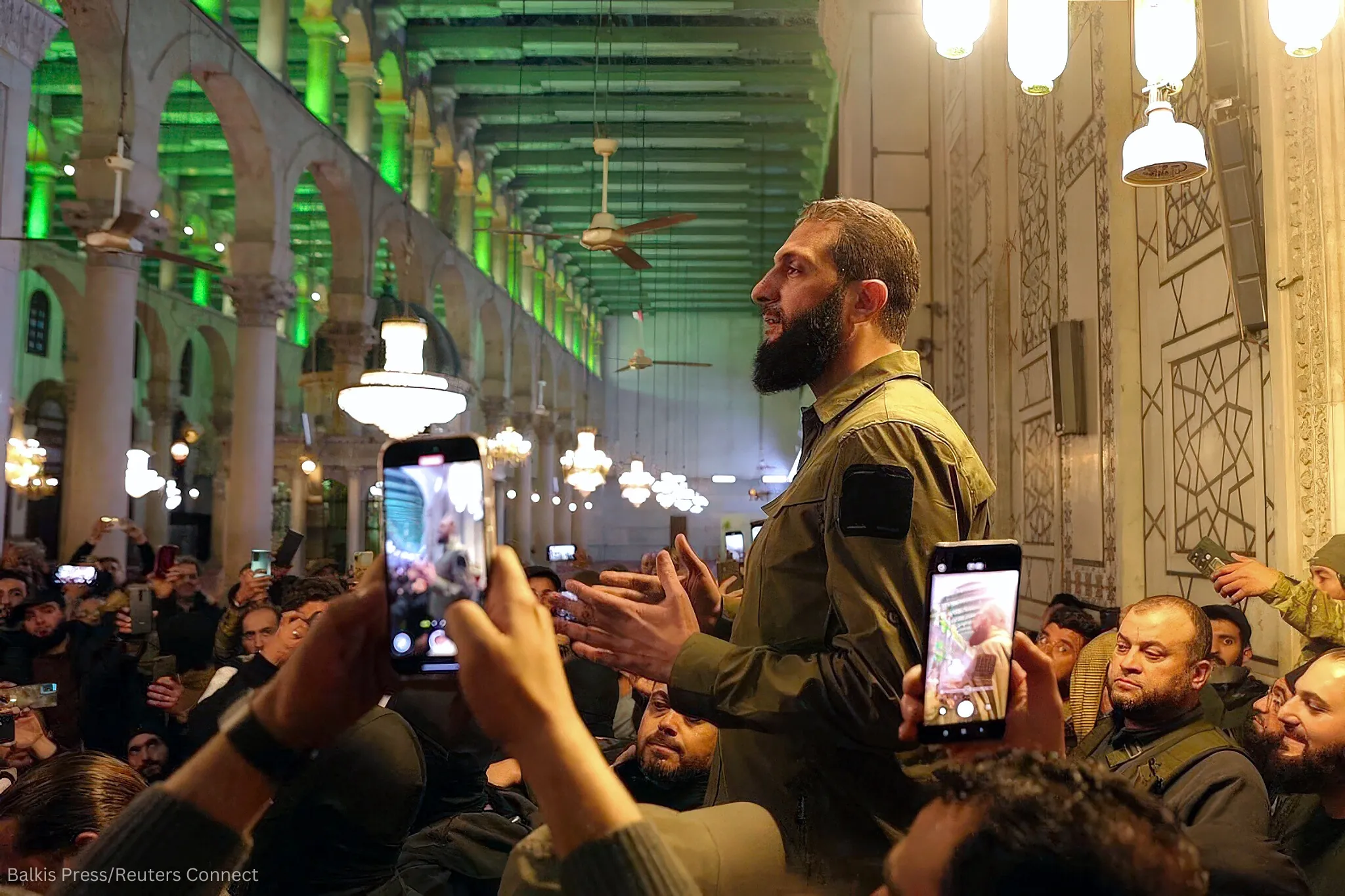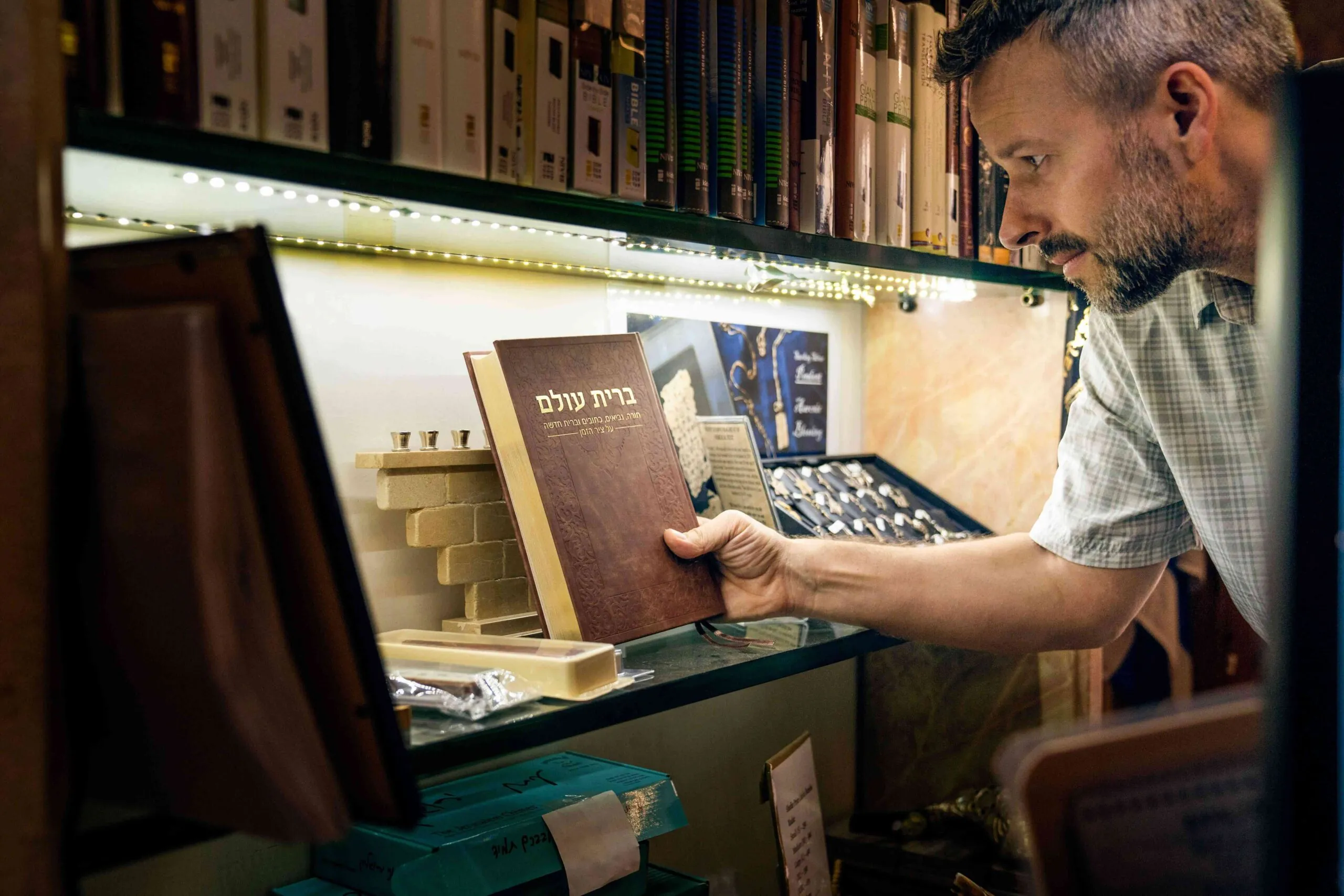
Several years ago, one of our neighbors who had served in a number of positions in the Foreign Ministry (most recently as Israel’s ambassador to a South American country), passed away. We went to visit his wife, as they had been our cordial friends for many years. She was a highly educated woman of Mizrahi [Middle East] heritage, who spent her days teaching Jewish children and adults the Bible and Hebrew literature in the nations where her husband served. We talked about her new loneliness and comforted her as she wept. Then, as usual, she began to ask us about our faith. We explained to her, as we had several times, why we believe that true Judaism, as the Old Testament prophesies, must have a Messiah who sacrifices his life to atone for the sins of our people.
Suddenly she interrupted us, and said, “I want to tell you something. When I was in South America, someone asked me if I had ever read the New Testament. I told them, ‘No, I have not, but I am willing to read it. Just give me a copy.’ I then took it home and began to read it.”
“Never have I been so disappointed in what I read!” she exclaimed. “First of all,” she continued, “the New Testament is written in very inferior Hebrew. Perhaps the purpose of Yeshua’s disciples was to write to the common people,” she explained, “but in doing so, they completely ruined the beautiful Hebrew language—the language of the prophets!”
“Secondly,” she exclaimed, “the writers of the New Testament, when quoting the Jewish Scriptures, actually misquoted them! As I was reading the New Testament, and I would come to quotations of Moses or the prophets, I would look it up in the Tanach (Old Testament), and there would be that exquisitely beautiful Hebrew. Then I would look at how Yeshua’s disciples quoted them, and I saw they really spoiled the Hebrew language! This alone made it obvious to me,” she concluded, “that Yeshua was not a legitimate representative of God or the prophets.”
She then went on to describe the beauty of the written word of the prophets, her love for her rich heritage and the strength that she draws from its pages. She added that if we ever wanted her to teach Tanach subjects in our classes for Messianic Jews, she would be delighted to do it!
The Language Barrier
Believe it or not, one of the most significant stumbling blocks to Israelis receiving salvation is rooted in the language of the Old Testament itself. Israelis today speak and read modern Hebrew. The Torah, the Prophets and the historical Books of the Bible are all written in ancient Hebrew. The beauty of the language cannot be described. The rabbis have a saying that when a person reads the Bible in any other language besides Hebrew, he is like a groom who kisses his bride through a veil.
This comparison of the Old and New Testaments as literature were not new to us. We had heard these comments many times. They come from a certain sector of Israeli society—those who are middle aged or older, well-educated, and steeped in Jewish tradition (which is different than Orthodox religion). They would consider themselves traditional Jews.
The New Testament Quotes from a Greek Translation
As educated as our friend was, she was surprised when we explained that the oldest known New Testament manuscripts were written in Greek. And that the Hebrew New Testament she was reading was actually a 20th century translation. We explained that some scholars do feel that parts of the New Testament may have been originally written in Hebrew, but until now, no such Hebrew originals have been found.
And while some Jews may look at the Greek-written New Testament as proof of its foreign nature, the Old Testament itself was also widely read in Greek several centuries before Yeshua was born. This translation, called the Septuagint, was translated for Greek-speaking Jews by some 70 revered rabbis and scribes living in Alexandria, Egypt, and was used by Jews and new Christians throughout the world during the Second Temple Period. It is from the Septuagint that the New Testament writers quote Old Testament Scriptures and why the wording is different from the original ancient Hebrew.
Interestingly, because all other languages are translations, when a person reads the Old or New Testament in another language, say English or Spanish or German, there is no perceptible difference in the quality of the literature of either.
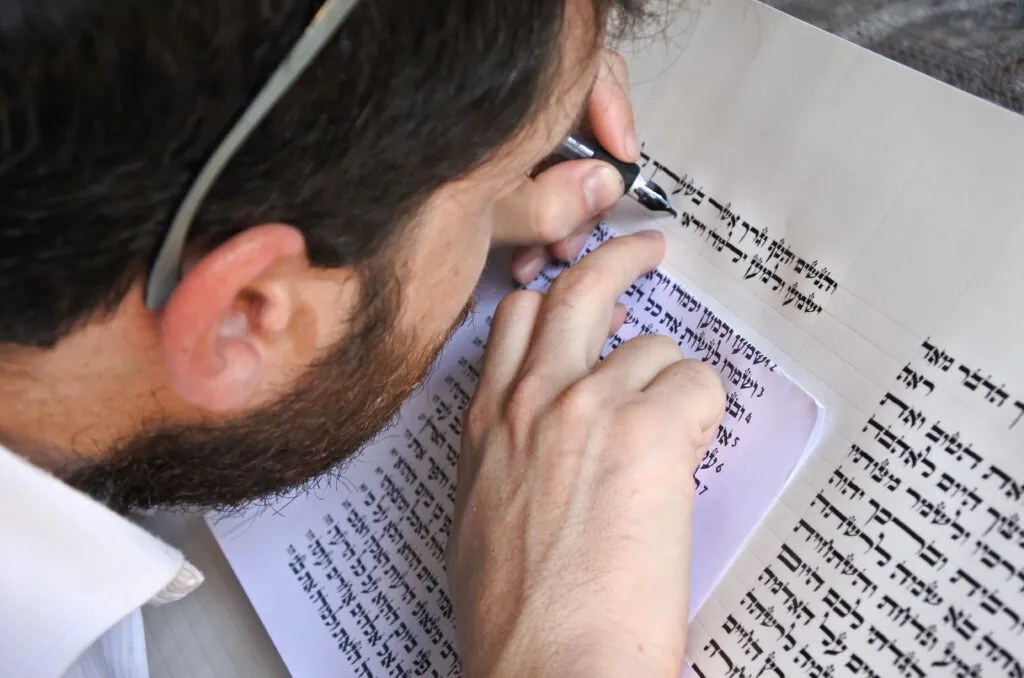
Credit: Shutterstock/ChameleonsEye
Beautiful but Complicated
If the hurdle for older Israelis is the “plainness” of the New Testament writing style, the roadblock for the younger generation is the complexity of the Old Testament!
The issue is that the Old Testament was written between 2500 and 3500 years ago. Even though Israeli children learn to read portions of the Bible in school, by the nature of Hebrew, a single word often has multiple meanings. One can only know the meaning by context. Therefore, the reader must choose a meaning; in other words, he must do a certain amount of interpreting to get the sense of the text. (This is one of the reasons many non-Hebrew speaking preachers can find themselves so far off with “original Hebrew word” teachings based on an afternoon or two of studying commentaries.) I realized just how difficult the ancient language of the Old Testament really was for most people when many years ago, I spent time with a professor of Bible from the University of Tel Aviv. He used to come over frequently to discuss the Bible—Old Testament and New Testament portions—and often after reading the Hebrew he would then ask to see my English Bible to verify the meaning!
Witnessing Takes Time
The ancient Hebrew dynamic greatly affects the process of witnessing in Hebrew. When speaking to an Israeli about the prophesies and the promises of God, you cannot easily “pop off” verses to corroborate your message. To grasp what you are trying to explain, the average person will have to slowly read the text, mull over the meaning, and at times deal with the possible vagueness of several optional interpretations. For this reason, it often takes time for a sincere seeker to get enough information from the Old Testament to enable him to see that Moses and the prophets really do point to Yeshua as the Lamb of God, the Son of God, and our Messiah.
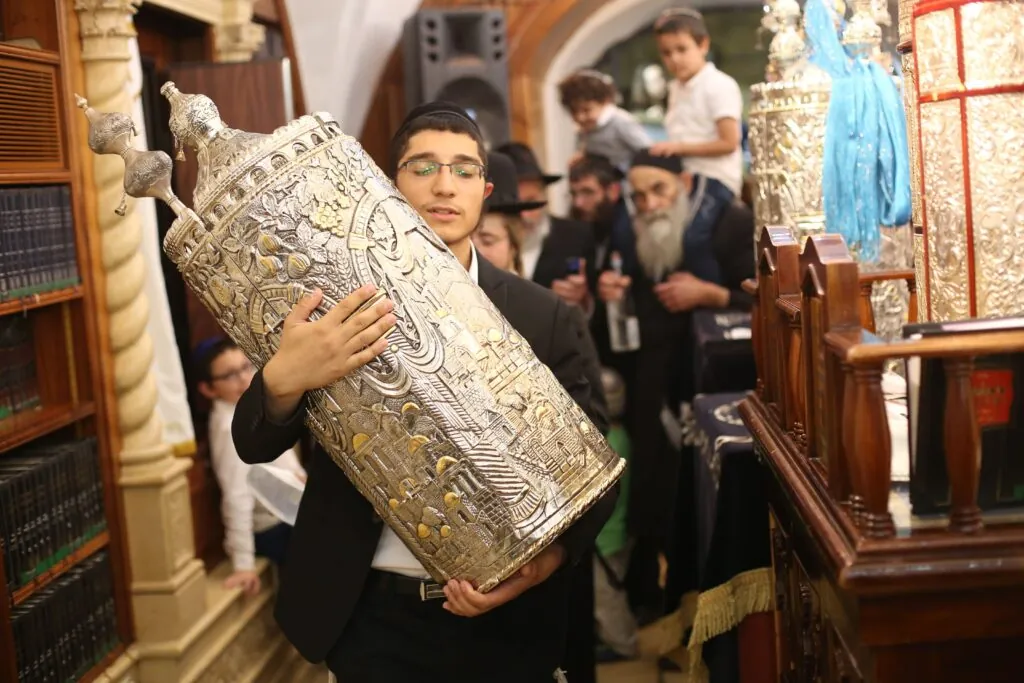
Credit: Shutterstock/David Cohen 156
A Bible, A Bridge
For decades Ari and I, our congregation and Maoz prayer warriors—have prayed into this dilemma. The ancient people of God should be able to read with understanding all of His written Word. God has known about these difficulties since the beginning of time—which means there was a solution to this obstacle. We just had to seek it out and pray it through.
About five years ago I stumbled across The Narrated Bible in Chronological Order by F. LaGard Smith. The designer of the book had taken the Scriptures and rearranged them into story form chronologically, giving context to Moses, the prophets and psalms by inserting them into the Bible’s story line as they took place.
Although I have read the Bible through each year for many years, I was struck by how much better I understood both the smaller details and the bigger picture with this new arrangement. I couldn’t help but wonder what kind of impact this Bible would have on Israeli readers. Ari and I approached Victor Kalisher of the Bible Society in Israel and together we agreed to take on the monumental project of creating a Hebrew version of this Bible. The original Hebrew scriptures remained unchanged. And to resolve the language barrier, we added a dictionary at the bottom of each page that would give clarification of the more difficult words.
We knew this book would address the very roadblocks we had been praying through for years! Israelis who want to read and understand the entire Bible for themselves now have the tools to do it. After three and a half years of collaboration with Israel’s Bible Society and over $500,000 raised from Maoz partners, this Bible was introduced in an online event to over 50 Messianic leaders from across the country. Many more leaders who couldn’t make the event approached us later, excited about what this Bible has to offer our people. When they tell us, “We want to get one for every elder and deacon in our congregation—and for new believers in our Bible studies,” it’s clear, they, too, understand this Bible can bridge the gap between modern Israel and their ancient Scriptures! Finally, we can begin a clearer conversation with the people of the Book!
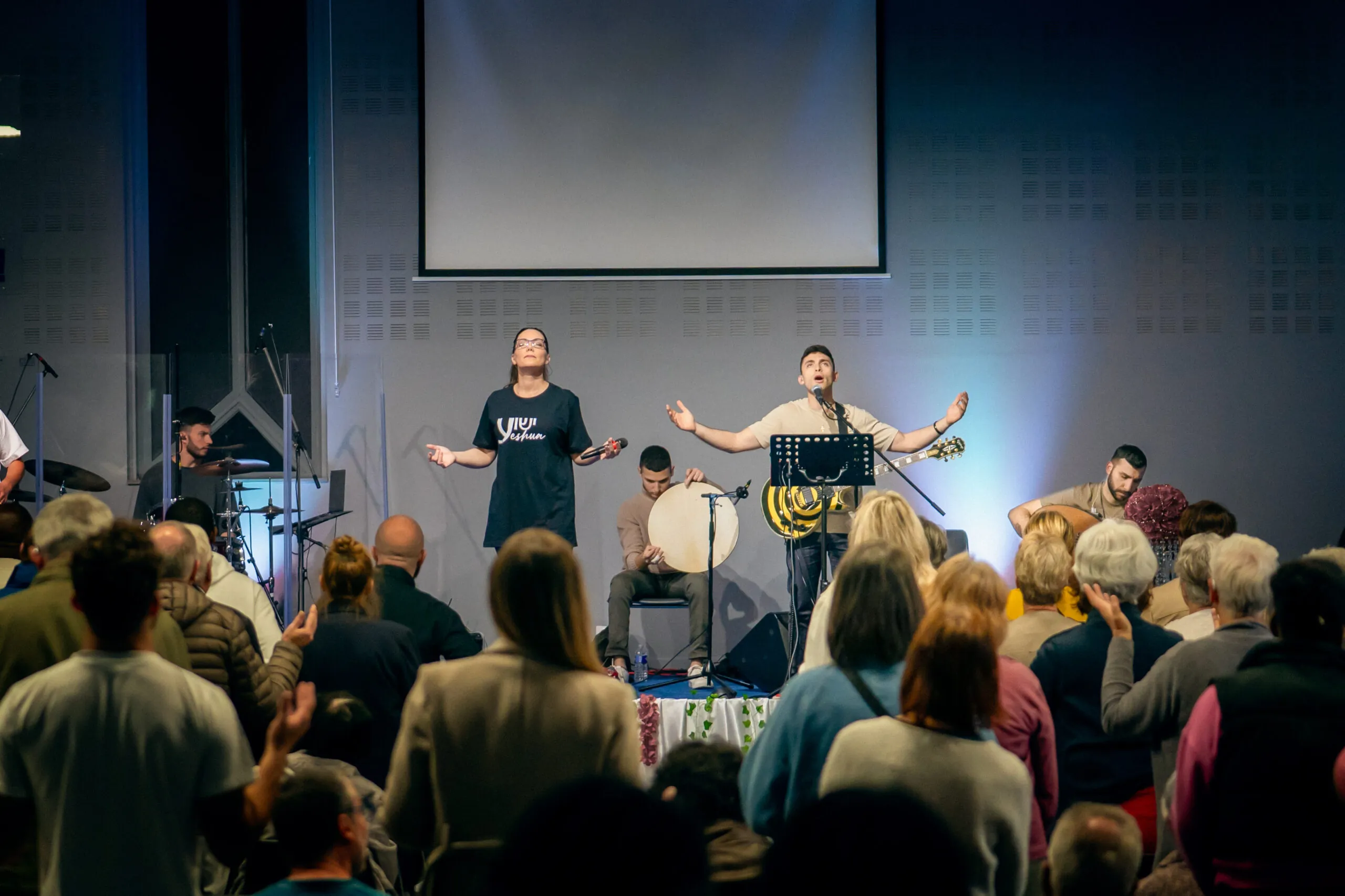
Israel and Ishmael Tour Mission

No Child Left Behind
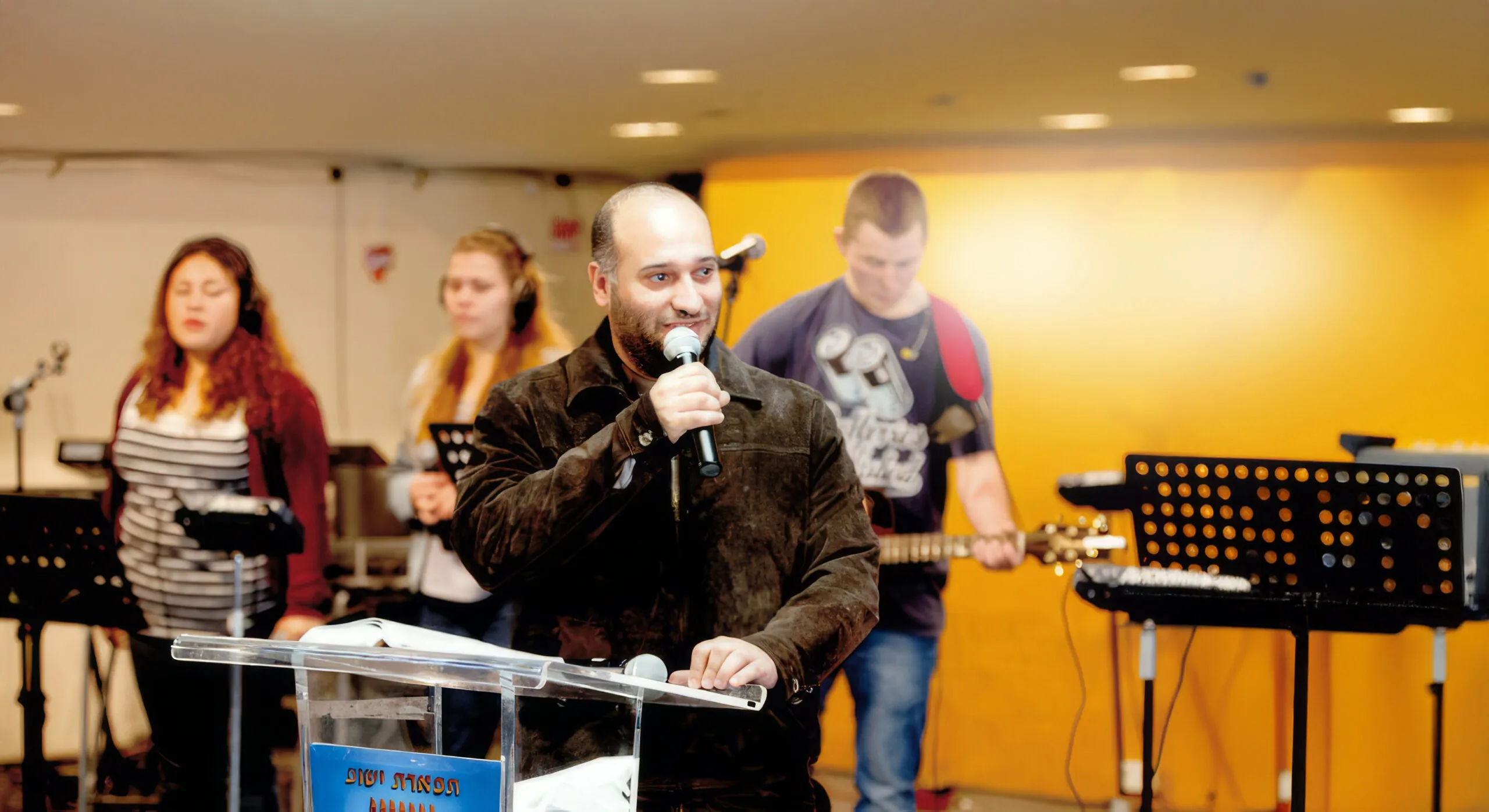
Israel’s First Indigenous Pastor?
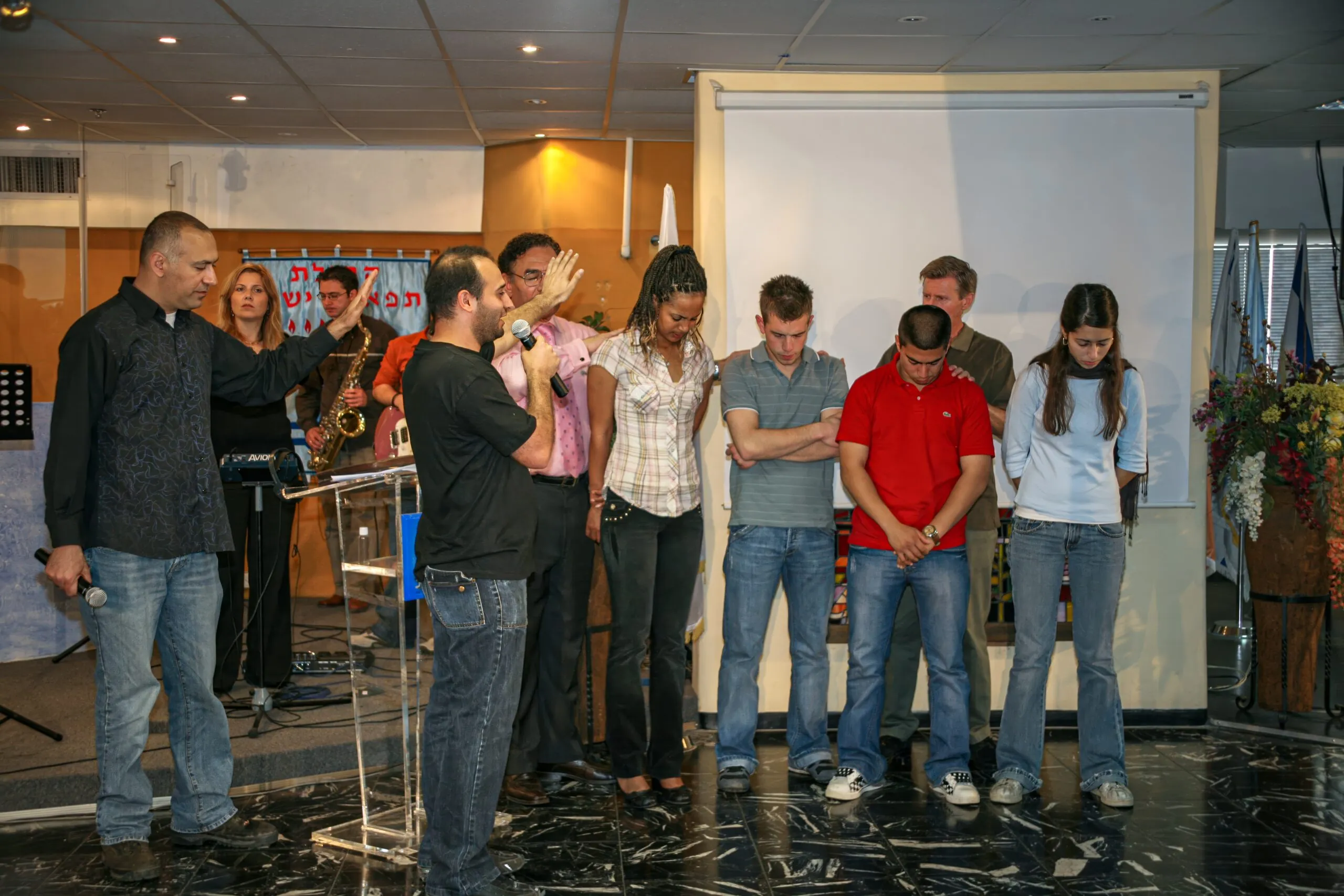
Rooted and Rising in Israel
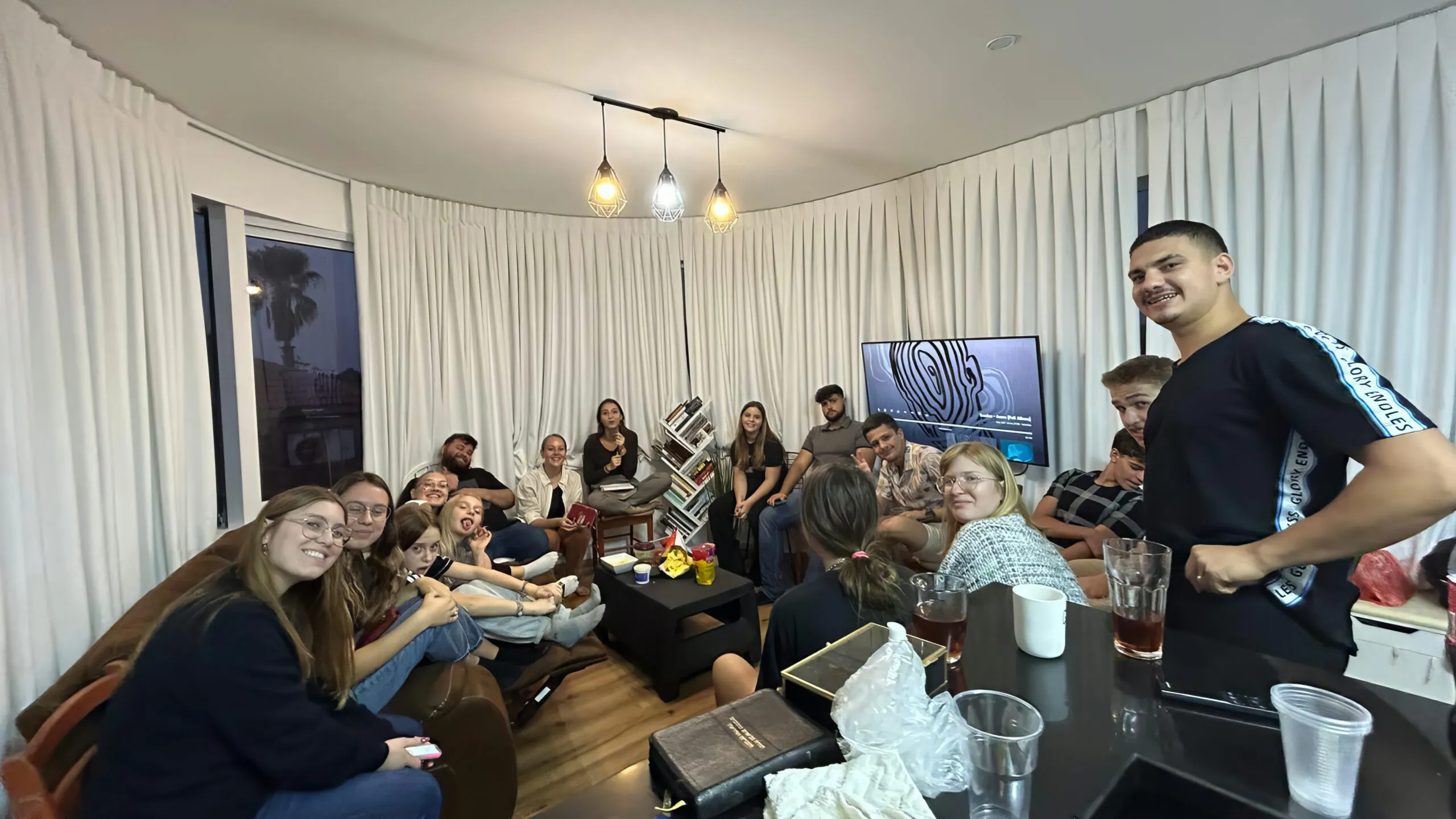
A New Generation Rises

Leaders in the Making

Free Gaza

Bringing Light Beyond Borders

From Crisis to Christ
